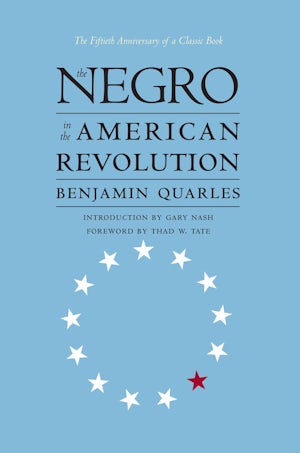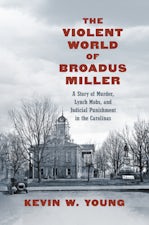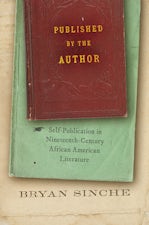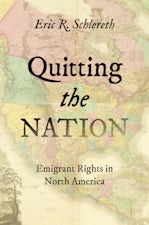The Negro in the American Revolution
By Benjamin Quarles
New introduction by Gary Nash; New foreword by Thad W. Tate
266 pp., 5.5 x 8.5, notes, bibl., index
-
Paperback ISBN: 978-0-8078-4603-2
Published: November 1996 -
E-book PDF ISBN: 979-8-8908-6675-2
Published: December 2012 -
E-book EPUB ISBN: 978-0-8078-3833-4
Published: December 2012
Published by the Omohundro Institute of Early American History and Culture and the University of North Carolina Press
Buy this Book
- Paperback $42.50
- E-Book $29.99
Published by the Omohundro Institute of Early American History and Culture and the University of North Carolina Press
In an introduction, Gary B. Nash traces the evolution of scholarship on African Americans in the American Revolution from its early roots with William C. Nell to this groundbreaking study. Quarles's work not only reshaped our thinking about the black revolutionary experience but also invigorated the study of black history as we know it today.
Thad W. Tate, in a foreword, pays tribute to the importance of this work and explains its continuing relevance.
About the Author
Benjamin Quarles was professor of history at Morgan State University in Baltimore. His many authored or edited books include The Negro in the Civil War and Narrative of the Life of Frederick Douglass.
For more information about Benjamin Quarles, visit
the
Author
Page.
Reviews
"One of the major virtues of Quarles's book is that it does not confine itself merely to [its] principal theme of Negroes as revolutionaries, but deals also with the Negroes who served with the British (mostly as laborers and a few as spies) and with those who were 'carried off' at the end of the war."--New England Quarterly
"Quarles sheds some light on a shadowy and esoteric corner of the history of the Revolution. . . . He has done impressive and thorough research."--American Historical Review




